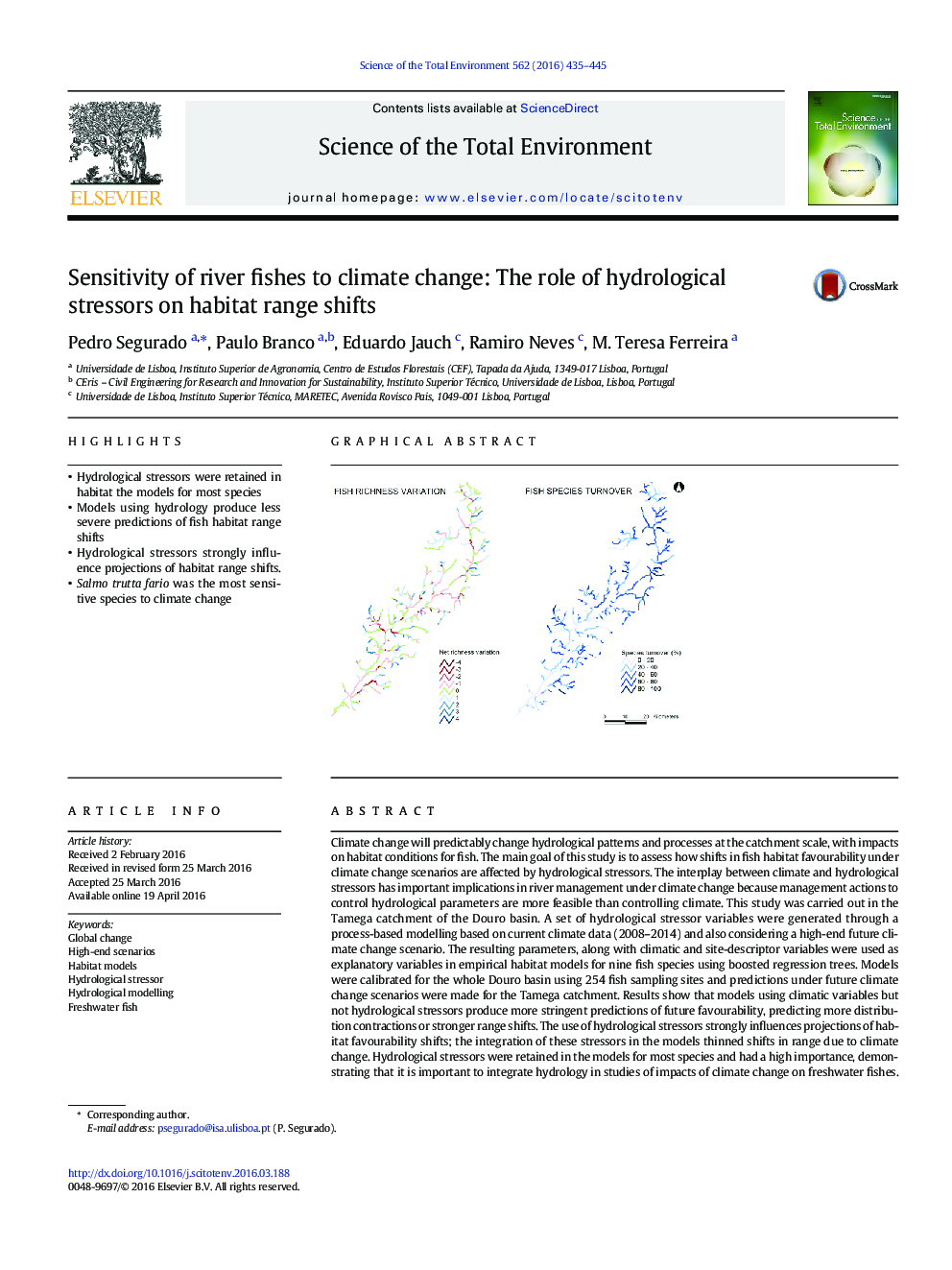| Article ID | Journal | Published Year | Pages | File Type |
|---|---|---|---|---|
| 6321725 | Science of The Total Environment | 2016 | 11 Pages |
â¢Hydrological stressors were retained in habitat the models for most speciesâ¢Models using hydrology produce less severe predictions of fish habitat range shiftsâ¢Hydrological stressors strongly influence projections of habitat range shifts.â¢Salmo trutta fario was the most sensitive species to climate change
Climate change will predictably change hydrological patterns and processes at the catchment scale, with impacts on habitat conditions for fish. The main goal of this study is to assess how shifts in fish habitat favourability under climate change scenarios are affected by hydrological stressors. The interplay between climate and hydrological stressors has important implications in river management under climate change because management actions to control hydrological parameters are more feasible than controlling climate. This study was carried out in the Tamega catchment of the Douro basin. A set of hydrological stressor variables were generated through a process-based modelling based on current climate data (2008-2014) and also considering a high-end future climate change scenario. The resulting parameters, along with climatic and site-descriptor variables were used as explanatory variables in empirical habitat models for nine fish species using boosted regression trees. Models were calibrated for the whole Douro basin using 254 fish sampling sites and predictions under future climate change scenarios were made for the Tamega catchment. Results show that models using climatic variables but not hydrological stressors produce more stringent predictions of future favourability, predicting more distribution contractions or stronger range shifts. The use of hydrological stressors strongly influences projections of habitat favourability shifts; the integration of these stressors in the models thinned shifts in range due to climate change. Hydrological stressors were retained in the models for most species and had a high importance, demonstrating that it is important to integrate hydrology in studies of impacts of climate change on freshwater fishes. This is a relevant result because it means that management actions to control hydrological parameters in rivers will have an impact on the effects of climate change and may potentially be helpful to mitigate its negative effects on fish populations and assemblages.
Graphical abstractDownload high-res image (186KB)Download full-size image
